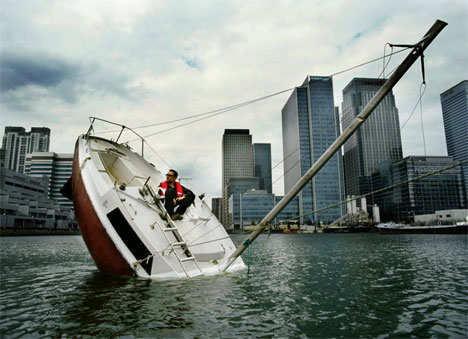Teetotallers Unlucky at Sea March 27, 2015
Author: Beach Combing | in : Contemporary , trackbackIn 1914, a month into the First World War, a British ship the Fisgard II was lost in a gale (not through enemy action) in the English Channel. Sixteen of the sixty four abroad were drowned. There followed an inquest and inquiries and, as sometimes happens, the crew began to make sense of things in superstitious terms: an all too human reaction. Beach would not have put this up had it not been for a very curious idea about the unluckiness of tee-totallers, who seem to have been particularly attractive to the waves.
Before leaving Portland some of the survivors told remarkable story of uncanny happenings just as the vessel was going on her ill-starred voyage There were three incidents, which are now looked upon as being warnings of her fate.
In the first place the men had a dog as a ship’s pet. They found it half starved and fed it until it became ‘chummy,’ but on the morning of the Fisgard’s departure from Portsmouth harbour the dog seemed to go mad. He would not touch food, flew all over the ship and finally plunged overboard. Some dockyard mateys rescued him in catamaran, but he went into the ditch again, and the last they saw of him was ‘his tail tearing down the dockyard.’
So an animal senses the fate ahead of him! A common topos. Sufficient to say every superstitious sailor should have got off the boat at this point.
[Second], the tug Volcano had the task of towing the Fisgard out and she broke two hawsers before she got the ship to move, and thirdly, when finally she got the ship under weigh [sic] the Fisgard fouled two buoys in the harbour.
The Fisgard had no steering gear of its own which made it next to defenceless when it was swamped. However, what about Death picking his victims: apparently only those who were entirely sober were dragged down into the weeds and shipwrecks below.
The men also state that they had smoking concert aboard, the refreshments being rum and biscuits. Every man who drank his rum was saved, but of the teetotallers only three escaped with their lives the other sixteen being lost.
Other examples of unlucky tee-totallers? drbeachcombing AT yahoo DOT com There are few more unpopular classes in the nineteenth century. It is one thing not to drink. It is another to proclaim yourself free of demon brew and look sententiously on your fellow passengers.
31 Mar 2015: DL writes in ‘Today, you had a note on the Fisgard. You might find interesting material in Eyes of the Fleet by Anthony Price. It is about frigate captains during the Napoleonic Wars, but also covers social aspects of the sailor’s lives. His section on the Great Mutiny at Spithead and the Nore has some very thoughtful appreciations. One of his points that is that there were few things that brought enjoyment to the lower decks. Grog was vital in this. He relates the story that the flagship of Admiral Edward Pellew in the Indian Ocean was caught in a great storm. One of the masts broke and fell over into the sea. This was dragging the ship down. The admiral was still vigorous and led a party to chop off the mast and save the ship. However, there were those men who seeing the ship would be swallowed up in the storm, broke into the rum locker and drank themselves into oblivion. Apparently in line with the old sailors rule that it is always better to drown drunk than to drown sober. Of course, the joke was on them as Pellew was a firm disciplinarian and flogged them. Would they have been happier to have drowned while in a drunken stupor, or to live but receive an epic flogging?’
I [Beach] wonders whether there was a superstition here in the background?



